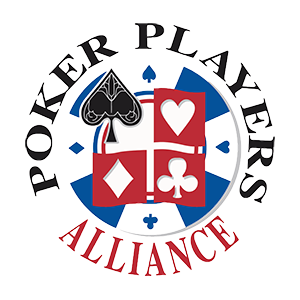
For the first time in the organization’s history, the Poker Players Alliance has sent out a desperation call for donations to aid in their work.
After taking the helm of the PPA last week from the departing John Pappas (who will depart the organization at the end of February), new PPA president Rich Muny issued an e-mail to their members and e-mail followers. Citing the decrease in donations from online poker sites and other internet gaming advocates, Muny admits to the constituency that the PPA is not doing well. “Over the past several months, we have been adjusting to a significant reduction in donations from the internet gaming industry, this despite our successes in Pennsylvania just a few months ago,” Muny writes in the e-mail. “We now find ourselves possibly shutting down right before what could be the biggest year for iPoker and iGaming yet.”
How bad could the situation be for what is supposedly a million-member strong organization, which seemingly had support from many of the major players in the live and online world? “(The) PPA cannot continue fighting for poker if we do not meet our fundraising goal of $25,000 by the end of March,” Muny continues. “With support from poker players and enthusiasts like you, we can easily make this goal.”
“Every dollar donated will go toward core operational expenses of our grassroots communications and advocacy, as our communications tools are crucial to PPA’s mission,” Muny concludes. “Please be sure to help ensure PPA’s continued leadership for our game!”
It must be stated that the PPA has never required a fee for membership in the organization. When it was initially founded back in the early Aughts, it depended on donations from members and others who believed in the goals of the group – to defend the rights of poker players and the ability to play the game either live or online. The group was able to raise a good deal of its base funding through the grassroots of the game – the players – and advocate in several arenas.
After the passage of the Unlawful Internet Gaming Enforcement Act in 2006, however, poker players lost faith in the PPA. Despite pleas from the PPA leadership that they had staved off passage of the UIGEA longer than if they hadn’t been around (and, to be honest, the UIGEA was a tack-on to a must-pass piece of legislation in the dark of night in 2006), the very people that the PPA was looking to represent began to lose faith in the organization itself.
There was an eager party willing to step in at that time, however. Online poker sites, looking to either keep the lights on the U. S. market or to get passage of pro-online gaming and poker regulations, began to supplement the PPA’s legislative and lobbying activities. As such, the PPA swung most of its efforts into working for online poker, to the point of putting some of the executives from these online poker sites on the Board of Directors of the PPA. This would prove to be another dagger in the heart of the group, though.
When “Black Friday” came in 2011 – the seizure and shutdown of the three biggest online poker operations in the U. S. – players once again complained about the lack of success from the PPA. When it was discovered that members of the ownership of Full Tilt Poker were intricately involved with the PPA’s Board of Directors, those complaints grew louder about how the group was now an “AstroTurf” (instead of grassroots) organization defending the online sites rather than the players. Although those involved with FTP were expelled from the PPA’s leadership, it was a bit too late.
Over the past seven years – with other online sites shutting down left and right and players losing millions of dollars – the PPA was unable to draw attention to those “screw jobs” from those sites. Instead, they concentrated their efforts on a low-cost means of advocacy through Facebook and Twitter called the “Daily Action Plan.” Although those actions would have both a good and detrimental effect on the debate, the money began to dry up from the online sites.
As little as four years ago, the PPA was drawing in roughly $5 million per year in donations and “membership fees” (parenthesis because members of the PPA do not have a set fee to pay yearly, it is by donation). Over the past couple of years, though, the monies coming in have dwindled to roughly $2-plus million and, it has been argued, led to the departure of Pappas.
Whether this fundraising effort will be successful is unknown. The PPA has a contingent that still believes in their work. They also have another contingent that doesn’t believe that the PPA is giving the right “bang for the buck” when it comes to lobbying for poker players’ rights and online and live poker. It remains to be seen what will become of the organization in what is a very pivotal year for online gaming, poker and perhaps other forms of internet gaming.























